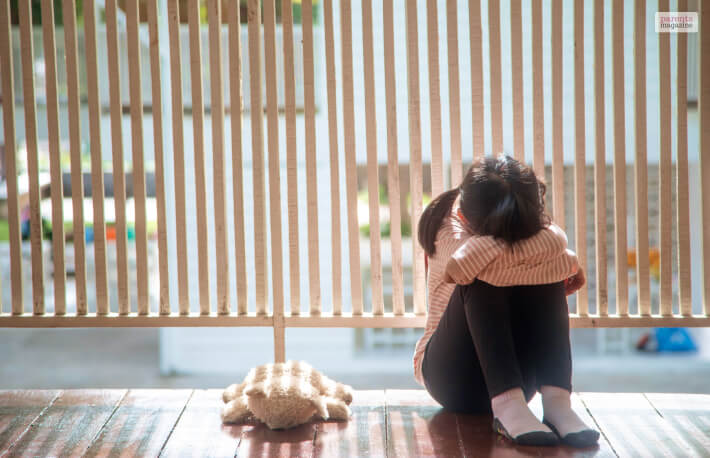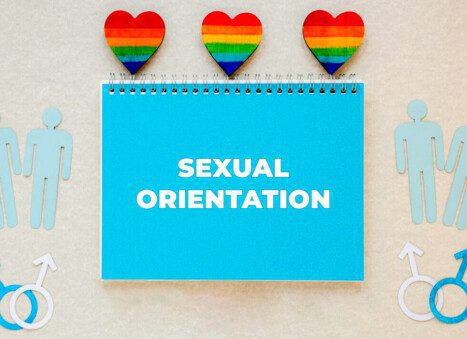
How Childhood Emotional Neglect Shapes Our View of the World
Childhood emotional neglect is a concerning matter, and it has been affecting both children and adults alike for decades. Such a condition arises when the parents or the caregiver of a child is unable to offer necessary emotional support to a child when needed.
Such negligence has both long-term and short-term effects on children. The short or immediate effects can subside over time. But the long-term effects persist (that’s why they are long term effects).
Teachers, parents, and caregivers of a child need to understand the causes and effects of childhood emotional neglect. They should know how it looks from the child’s perspective and find ways to correct it. Please continue reading to learn more about this topic.
What Is Childhood Emotional Neglect?

Childhood emotional neglect results from the child’s parents’ lack of adequate emotional response. It is not necessarily emotional abuse of a child since it can be done unintentionally. Emotional abuse is an intentional, purposeful act that causes harm to a child. But emotional neglect is intentional and unintentional disregard for a child’s feelings.
Parents and caregivers often fail to notice the emotional needs of the child and respond to them accordingly. Simply put, childhood emotional neglect is also a failure for the parents or caregivers. Such parents provide the necessities and the care the child needs to grow up. However, they just miss out on certain needs of the child or mishandle key areas where the child needs support.
For example, when the child expresses their emotion about certain events they had at school, their parents brush it off as something trivial. Instead, they had to understand the child’s emotions at that moment and help them cope with them.
However, most of the signs of emotional needs children give are often subtle. Although the very severe ones don’t go unnoticed and are attended to, the subtle ones are usually overlooked. This is what causes childhood emotional neglect.
How Does Emotional Neglect Shape Our View Of The World?
Childhood emotional neglect shapes and affects both children and adults alike. However, symptoms vary between children and adults. To understand the extent childhood emotional neglect shapes us, we have to know how it affects both children and adults separately.
How Does Childhood Emotional Neglect Affect Children?

Here are some of the most common effects of such negligence among children –
- depression
- anxiety
- Apathy
- developmental delays
- failure to thrive
- Hyperactivity
- low self-esteem
- aggression
- substance misuse
- appearing uncaring or indifferent
- shunning emotional intimacy
- withdrawing from friends and activities.
How Does Childhood Emotional Neglect Affect Adults?
Here is how emotional neglect in childhood can affect adults later in life.
- post-traumatic stress disorder
- emotional unavailability
- depression
- shunning intimacy
- the increasing possibility of eating disorder
- feeling deeply, personally flawed
- poor self-discipline
- feeling empty
- guilt and shame
- anger and aggressive behaviors
- Difficulty trusting other people.
- Relying on just anyone
When children with emotional neglect during childhood grow up to become parents, they are also likely to emotionally neglect their children. They never learned the importance of their own emotions, and they can’t understand and nurture the emotions of others (most importantly, their children.)
Negligence during childhood causes children to repeat the same issue with their own children when they grow up.
However, understanding their experience and seeking treatment for childhood emotional neglect can help people of any age overcome the effects of the same. These treatments help both in the short term and in the long term.
What Causes Emotional Neglect Among?
Almost similar to the causes of child abuse, the reasons of emotional neglect among children are also hard to understand. Also, most of the negligences usually don’t come from parents being intentionally bad parents. So, what causes parents to neglect the emotional needs of their children? Here are some of the reasons –
- Depression.
- Mental health disorders.
- Substance misuse.
- Resentment or anger toward their child
- Lack of personal emotional fulfillment.
- A history of emotional neglect during childhood.
- Lack of knowledge about parenting.
Emotional negligence works like a chain reaction. If a person was neglected emotionally as a child, they are supposed to pass on the same emotional feelings as their parents. These parents usually come from families that once neglected (or failed to notice or respond to) their emotional needs.
Due to such experience, these parents also don’t have the parenting skills to understand the emotional needs of their children. Caregivers or parents who lack a satisfying or healthy relationship with other adults also tend to cause emotional neglect to their children.
Healing Process From Childhood Emotional Neglect
Childhood emotional neglect has a way of affecting relationships and emotions, so building emotional intelligence is very important for healing from childhood trauma. Having a healthy relationship and developing proper regulation skills is something important for getting out of childhood trauma. It might be difficult but not impossible. Here are a few tips.
Self-Compassion Is Important
People who have experienced childhood trauma and emotional neglect might get hard on themselves and judge themselves harshly. But try to be considerate and think twice, why you are behaving this way.
Before judging yourself try to figure out why you are feeling what you are feeling, and think if you have any painful memories behind this. Be curious about yourself. That will help you to evaluate your relationships, can make you self-aware, and let you think twice why you are feeling this way.
Engage Your Mind And Body
Our emotions have a way of expressing themselves through our bodies. Our bodies store our traumas and feelings. Childhood emotional neglect has a tendency of shutting down the physical as well as emotional response unconsciously. It is best to engage in healthy habits as a part of recovery.
Yoga and meditation are the best ways to help your mind and body become one. There have been studies which shows that doing yoga regularly decreases the signs of PTSD and anxiety.
Learn Regulation Skills
People who have experienced emotional neglect in their childhood never get the opportunity to learn skills about regulation from their parents and primary caregivers. But it is necessary to develop these skills to survive and function in society.
Regulation involves exercises that let you build the ability to feel everything you are feeling without letting your body react and take over the emotions. You can start with basic breathing exercises relaxation techniques and grounding techniques.
Letter To Yourself
Give back the love that you did not receive from your parents in your childhood. Give yourself the love you deserve, give back the compassion, validation, and guidance that you missed. Let yourself feel the pain you felt. This might be a healing experience, and it will allow yourself to process those emotions.
Heal Your Inner Child
Realize the issues you have, and face the wounded child inside you. Engage yourself in activities that make you happy, bring you comfort, spend time with you, and take good care of yourself. If needed take the guidance of a therapist or a counselor who has experience in this field and would help you with your issues along with teaching you coping mechanisms.
How To Treat People With Childhood Emotional Neglect?

Whether someone has experience negligence during childhood or experiencing them now as a child, have the same treatment method to help them. Here are some of the most common treatment options –
1. Therapy
The most common treatment for childhood emotional neglect is therapy. A therapist or psychologist can help children cope with their emotions. However, if a child suppresses their emotions, it might be hard to identify them in a healthy way.
However, adults suppressing their emotions for years will find it difficult to express them later in life. That is where therapists and psychologists can help regulate, identify, accept, and channel those emotions.
2. Family Therapy
While therapy for children with childhood emotional neglect is important, family therapy works even better. The therapist can help the child and the parents identify, understand, and work on their emotions. Such therapies help the children cope with the problems they are already facing.
If intervened early, correcting certain behaviors that lead to certain consequences may be possible.
3. Parenting Classes
It is important for parents to take classes in parenting, especially when they are struggling to discover the signs of their child’s emotional needs. There are many expertise classes that teach parents to recognize and respond to certain emotional needs of their children.
4. It’s All About Stopping The Cycle
Yes, childhood emotional neglect is not easy to cope with. However, it is not impossible. Treatment and healing are necessary for both the person facing emotional neglect and the parent causing it. It starts with the involvement of the parents and the children, and the problem will subside only when one stops its repeat.
It is suggested that children and grown-up adults with this issue seek professional help to create a better and thriving family environment. I hope the information given in this article was helpful. However, if you need any additional help, please use the comment section for the same.
Read Also:
Already have an account?
Sign In
Create your account
User added successfully. Log in








